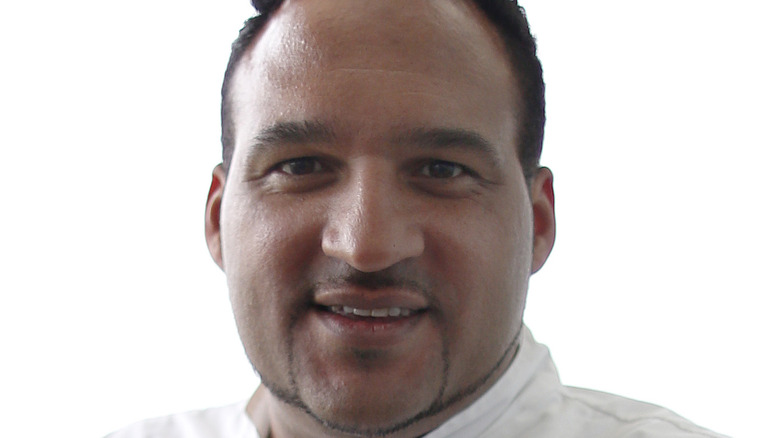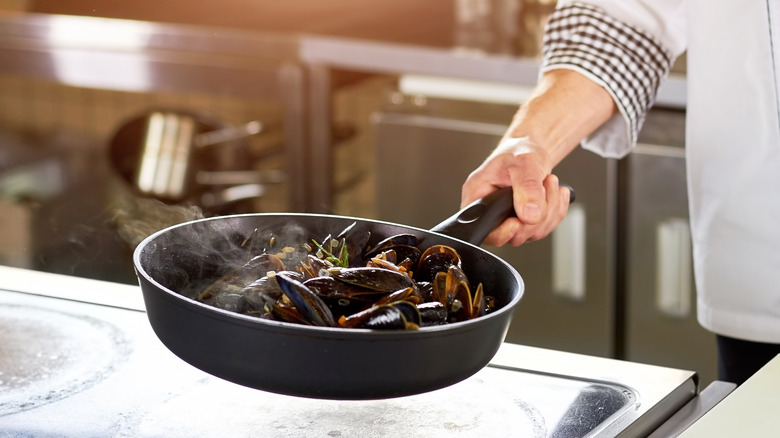How Michael Caines Keeps His Restaurants Environmentally Sustainable
If you search for Michael Caines, you'll notice the letters "MBE" after his name. According to The Gazette, MBE stands for Most Excellent Order of the British Empire and is the third-highest rank in the Order of the British Empire. It is awarded to individuals demonstrating exemplary achievement with long-term community-focused effects. In 2006, Caines received this honorable accolade for his commitment to hospitality.
One of England's most celebrated chefs, Caines has collected Michelin stars, cooked for Britain's Prime Minister, and has been named AA Chef Chef of the Year. With over two decades spent in kitchens, Caines has dedicated himself to the art and craft of hospitality, even while overseeing multiple fine dining establishments and catering for the Grand Prix (via Oxford Cultural Collective). We forgot to mention Caines is also a Crown-appointed Deputy Lieutenant; when he takes an issue like sustainability seriously, it's safe to say he means business.
In an interview with Green + Kode, Caines voiced his commitment to sustainable food practices, citing sustainable fishing and other initiatives that support not only his team but also his customers in making more sustainable culinary choices, from local farms all the way to waste bins.
Sustainable actions throughout the food chain
Michael Caines recognizes that as a famous chef "you got to practice what you preach" and set standards for others to follow, as he states in the interview with Green + Kode. A big part is helping educate his team and customers about what actions are taken and why they matter — that's why he's put on a festival to help connect consumers with farmers and food producers (per Michelin Guide). As stated on his website, Caines believes in seasonality and respecting natural food cycles. "Not only does it have a better flavor profile but we're helping to safeguard the future of eating," he told The Greatest British Hospitality Company. He encourages chefs and diners to use strategic substitutions — local hake instead of farmed salmon, for instance — to take pressure off more well-known and less sustainable menu items (per The Fish Site). And, it isn't just his team, Caines works with local recycling centers to reduce waste from his restaurants, as recorded by Warm Welcome Magazine, and uses plastic-free gift cards and biodegradable products.
As consumers and chefs make more choices with sustainability in mind, many businesses are looking to accommodate these demands. Caines believes the pandemic has encouraged consumers to make more thoughtful choices, "...I think people have appreciated more and more the landscape that they live in. And if you can reconnect with that landscape, perhaps you'll start taking responsible decisions about how you're going to live and interact within that landscape," (via Green + Kode). Whether finding ways to sustainably source ingredients or reduce food waste in the kitchen, thoughtfulness is permeating every step of the food chain.

